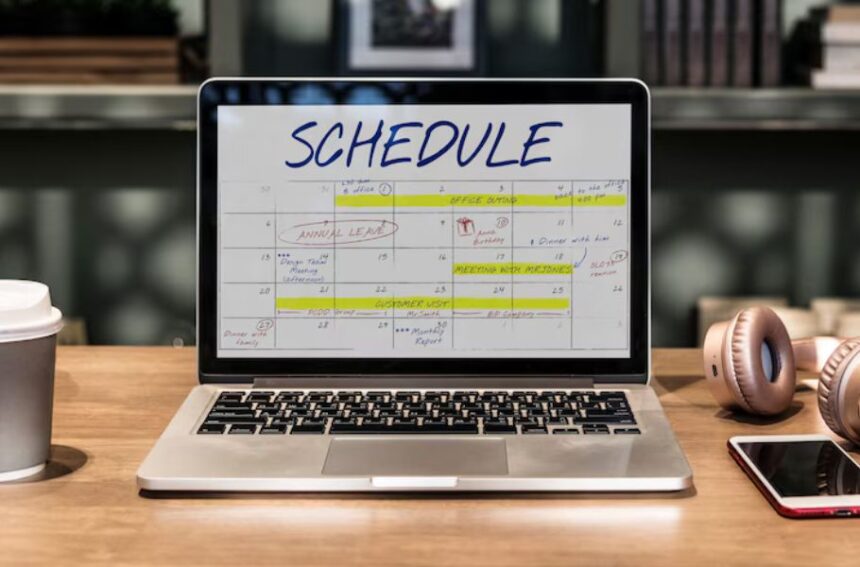Meetings are an essential part of our professional lives. However, managing and organizing them can be a real challenge. That’s where a meeting scheduler comes in a simple but powerful tool that can transform the way you plan your day.
In this article, we’ll walk you through everything about meeting schedulers, their benefits, features, and how they can make your life easier. Let’s dive in!
What is a Meeting Scheduler?
A meeting scheduler is a tool (software, app, or platform) designed to simplify the process of setting up meetings between individuals or teams.
Rather than spending endless emails and calls to find a common time, a meeting scheduler automates the process. With just a few clicks, you can share your availability, select time slots, and confirm appointments quickly and easily.
Why Do You Need a Meeting Scheduler?
- Save Time: No more back-and-forth communication.
- Avoid Conflicts: It automatically checks your availability.
- Professional Image: Shows that you respect others’ time.
- Increase Productivity: More focus, less scheduling chaos.
In short, a meeting scheduler is your personal assistant when it comes to handling appointments.
Key Features to Look for in a Meeting Scheduler
Choosing the right meeting scheduler can completely change the way you manage your day. However, not every tool fits everyone’s needs. To help you make the best choice, here are some essential features you should look for when selecting a meeting scheduler:
Easy Calendar Integration
A good meeting scheduler should easily integrate with popular calendars like Google Calendar, Outlook, or Apple Calendar.
Why it matters: This ensures your availability is always updated, avoiding double-bookings.
Time Zone Detection
When you are scheduling meetings with people from different regions, automatic time zone detection is critical.
Why it matters: No confusion or miscommunication about meeting times.
Customizable Meeting Types
It should allow you to create different meeting types such as one-on-one, group meetings, webinars, or interviews.
Why it matters: Helps in organizing different formats of meetings smoothly.
Automated Reminders
Sending automatic email or SMS reminders to attendees ensures everyone shows up on time.
Why it matters: Reduces no-shows and missed meetings.
Buffer Time Setting
You might need a small break between meetings. A good scheduler lets you set buffer time before or after a meeting.
Why it matters: Prevents back-to-back meeting stress.
Benefits of Using a Meeting Scheduler
In today’s fast-paced work environment, time is one of the most valuable assets. Managing meetings manually not only wastes time but also causes unnecessary stress.
A meeting scheduler simplifies this process beautifully, offering a range of benefits that go beyond just setting a time to talk.
Reduces Scheduling Frustrations
Finding a common time becomes effortless with automatic availability sharing.
Professionalism
Sending someone a link to your available times looks far more professional than asking, “When are you free?”
Better Client Experience
Clients can easily book a meeting without calling or emailing back and forth.
More Control Over Your Calendar
You decide when you are available and when you aren’t. You stay in charge.
Saves Admin Costs
If you or your team spend less time scheduling meetings manually, it means saving on operational costs too.
Identify Your Needs
Do you need it for internal team meetings, client calls, interviews, or sales demos? Your use-case will guide your choice.
Check Integration Options
Ensure the scheduler integrates with your current tools email, CRM, calendar, etc.
User-Friendliness
Choose a scheduler that is easy for both you and your attendees to use.
Pricing
There are free versions and paid versions. Understand your budget and go for the one that fits best.
Customer Support
Good customer service can save you from a lot of headaches later on.
Common Mistakes to Avoid When Using a Meeting Scheduler
Using a meeting scheduler can make your professional life a lot easier but only if you use it the right way.
While schedulers are designed to simplify your calendar, certain mistakes can actually cause more confusion instead of reducing it.
Not Updating Your Calendar
If you don’t keep your personal or professional calendar updated, your meeting scheduler could double book you.
Offering Too Many Options
Giving too many options can overwhelm the other person. Limit available slots for better responses.
Ignoring Buffer Times
Not giving yourself a breather between meetings can lead to fatigue and reduced productivity.
Conclusion
A meeting scheduler is not just a tool; it’s a productivity booster. It saves time, reduces stress, and shows professionalism whether you’re a freelancer, a startup founder, or part of a large corporation.
With the right meeting scheduler in place, you’ll spend less time worrying about when to meet and more time focusing on what really matters.
Investing in a good meeting scheduler is investing in a smoother, smarter workday!
FAQs
- What is the best free meeting scheduler?
Several free options exist like Calendly’s basic plan, Doodle, and Google Calendar’s meeting scheduler feature. The best one depends on your needs and integrations.
- Can a meeting scheduler handle different time zones?
Yes, most modern meeting schedulers automatically adjust meetings to the time zone of each participant, avoiding confusion.
- Are meeting schedulers safe to use?
Absolutely. Reputable meeting schedulers use encryption and security protocols to protect your information. Always check the tool’s privacy policy before signing up.
- How do I send someone a meeting scheduler link?
Most schedulers give you a unique URL. You can send this via email, WhatsApp, or even embed it on your website for clients to book meetings directly.
- Can I customize my available times on a meeting scheduler?
Yes! You can set your working hours, block off unavailable times, and even add holidays or personal breaks as per your convenience.



